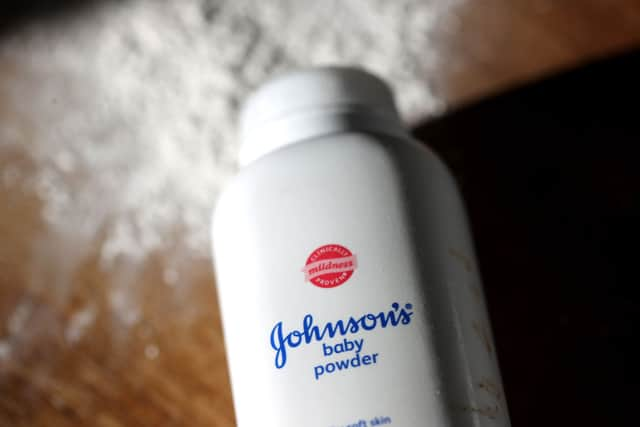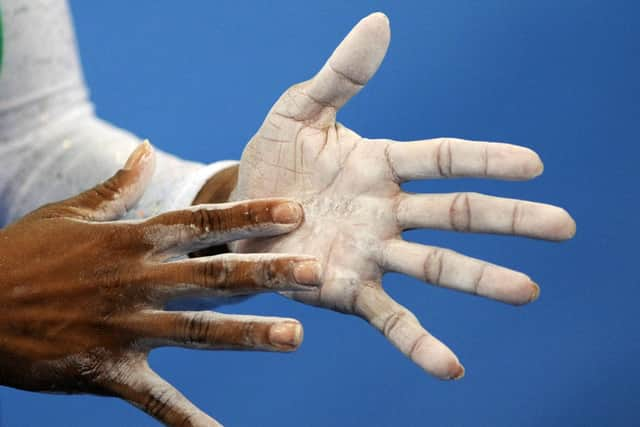Johnson & Johnson talcum powder: why will company stop making talc based powder, and does it cause cancer?
This article contains affiliate links. We may earn a small commission on items purchased through this article, but that does not affect our editorial judgement.
and live on Freeview channel 276
Johnson & Johnson have announced that it will be pulling its talc-based baby powder worldwide in 2023 in favour of its cornstarch based baby powder.
The move comes after the company stopped selling its talc-based powder in the US and Canada amid thousands of lawsuits claiming that it had caused cancer.
This is what you need to know.
Why are Johnson & Johnson ending its talc-based baby powder?
Advertisement
Hide AdAdvertisement
Hide AdIn a statement, the company said that following a “worldwide portfolio assessment”, it has made the “commercial decision to transition to an all cornstarch-based baby powder portfolio”.
As a result of this transition, Johnson & Johnson’s talc-based baby powder will be discontinued globally in 2023.
Johnson & Johnson said: “We continuously evaluate and optimise our portfolio to best position the business for long-term growth.
“This transition will help simplify our product offerings, deliver sustainable innovation, and meet the needs of our consumers, customers and evolving global trends.”


Advertisement
Hide AdAdvertisement
Hide AdThe move comes two years after Johnson & Johnson stopped selling its talc-based baby powder in the US and Canada due to a fall in demand surrounding what it branded “misinformation” about the safety of talc.
The company has faced thousands of lawsuits alleging its talcum powder caused users to develop ovarian cancer, through use for feminine hygiene, or mesothelioma, a cancer that strikes the lungs and other organs.
Johnson & Johnson ended its statement by saying “our position on the safety of our cosmetic talc remains unchanged”.
“We stand firmly behind the decades of independent scientific analysis by medical experts around the world that confirms talc-based Johnson’s Baby Powder is safe, does not contain asbestos, and does not cause cancer,” the statement ended.
Is talcum powder safe?
Advertisement
Hide AdAdvertisement
Hide AdThe US Food and Drug Administration (FDA), describes talc, also known as talcum, as a “naturally occurring mineral, mined from the earth, composed of magnesium, silicon, oxygen and hydrogen”.
Talc deposits are often located next to asbestos in the earth, also a naturally occurring mineral, talc is sometimes contaminated.
Asbestos is a known carcinogenic, and, if inhaled over a long period of time, the fibres become trapped in the body and can cause diseases like lung cancer, mesothelioma and asbestosis.
Studies have been conducted going back to the 1960s looking into whether talc is safe to use.


Advertisement
Hide AdAdvertisement
Hide AdSome studies have found a possible link between talcum powder and ovarian cancer, however the evidence hasn’t been strong enough to make any conclusions.
Cancer Research says: “Some studies have suggested a possible increase in risk of ovarian cancer in women who use talc on their genitals, but the evidence isn’t clear. More research in bigger, higher-quality studies is needed to confirm if there’s a link.”
The American Cancer Society adds: “When talking about whether or not talcum powder is linked to cancer, it is important to distinguish between talc that contains asbestos and talc that is asbestos-free.
“Talc that has asbestos is generally accepted as being able to cause cancer if it is inhaled. The evidence about asbestos-free talc is less clear.”
Advertisement
Hide AdAdvertisement
Hide AdIn 2018, a Reuters investigation found that Johnson & Johnson was aware, for decades, that asbestos was present in its talc products.
The report found that, from at least 1971 to the early 2000s, Johnson & Johnson’s raw talc and finished powders sometimes tested positive for small amounts of asbestos.
Comment Guidelines
National World encourages reader discussion on our stories. User feedback, insights and back-and-forth exchanges add a rich layer of context to reporting. Please review our Community Guidelines before commenting.
